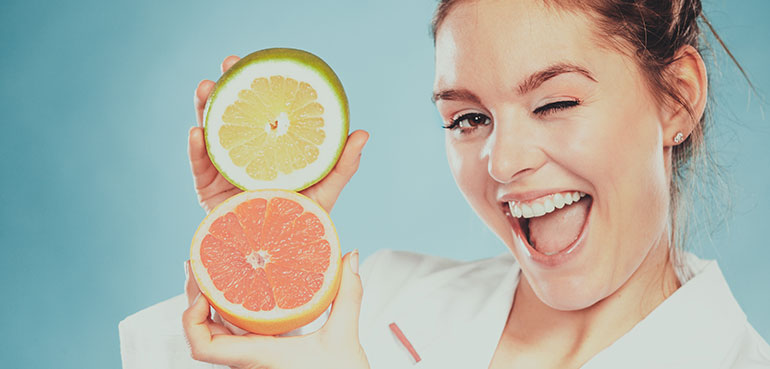In this day and age of social media, there is a growing concern among health and nutrition experts about the integrity and accuracy of information available. Individuals are increasingly trusting in and following recommendations by celebrities or “nutrition experts” with little to no training. These recommendations are often more hype than science. While these “experts” may have the best of intentions to help individuals on the road to health, many of these celebrities and “nutritionists” often provide false hope and lead them down the wrong path.
They may have beautiful websites and social feeds, sensational success stories to support their recommendations, and plenty of followers eager for the secret to lean and healthy; but where is the science?
Registered dietitians (RDs), like those on our Healthy Dining team, go through years of schooling and comprehensive internships. Every step of a dietitian’s training is based on verifiable science and trusted methods. Dietitians are required to not only pass an extensive exam covering everything learned during those years of training but also complete ongoing certifications in order to stay on top of the science and maintain their licensing. These true nutrition experts understand all of the ins and outs of food and how it’s used by the body, from the first bite down to the molecular level.
It’s no wonder the Healthy Dining team was so excited to run across a recent post on The Sun titled, Insta-gurus’ diet advice is hard to swallow: Beware of half-baked posts from self-styled nutritionists. The article sums up our growing concerns about the number of “nutrition experts” providing recommendations and includes commentary by Anthony Warner, aka The Angry Chef as well as several registered dietitians discussing why you should opt for a highly trained registered dietitian over a celebrity nutritionist when it comes to nutrition guidance. The Angry Chef states:
“I have a degree in biochemistry. I know that the vast majority of things that these self-styled gurus are chuntering on about are utter nonsense and have no scientific validation whatsoever.”
“I have a daughter in her early teens, and the thought of girls her age reading pseudo-scientific advice telling them to avoid huge lists of foods is horrifying.”
“It’s ‘woo’ masquerading as science, which apart from being untrue, can be potentially harmful. And people need to know this.”
The article also calls out these 10 common “expert” topics you should definitely take with a grain of salt:
1. Detoxes and Cleanses
2. Alkaline Foods
3. Coconut Oil
4. Butter in Coffee
5. Gluten-Free being Healthy
6. Microwaves
7. Chlorophyll
8. Spirit World Advice
9. Sugar Free
10. Chemicals
Following a healthy and balanced diet is key to a healthy lifestyle, but with the abundance of information readily available on the Internet and social media, it’s not always easy to determine what’s scientifically accurate and what is personal opinion. Work with a registered dietitian for the best nutrition recommendations. A highly trained RD can create a healthy eating plan that works for you, no detoxes required.

